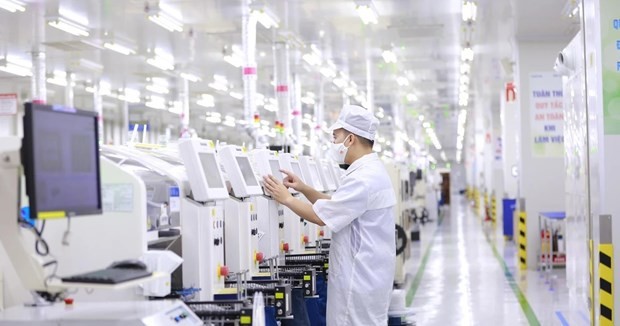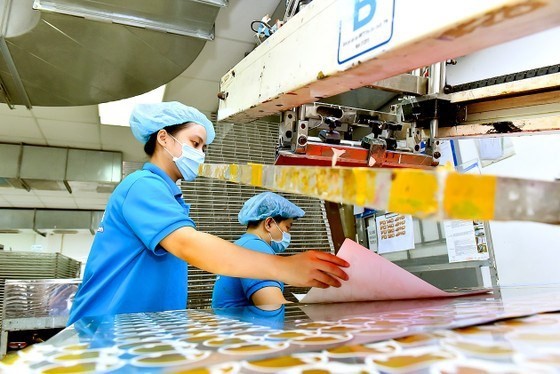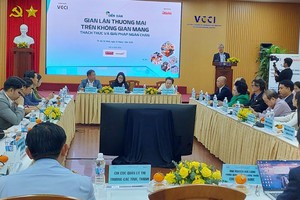 |
Vietnam records US$15.91 billion in foreign investment registered during the first nine months of 2023. (Photo: VNA) |
Among the 1,300 European businesses inquiring about the investment climate in Vietnam, up to 63 percent listed the country among the top 10 destinations for foreign direct investment (FDI) firms, the Sai Gon Giai Phong (Liberated Saigon) daily reported.
Gabor Fluit, Chairman of the European Chamber of Commerce (EuroCham) in Vietnam, held that the country’s efforts to improve the investment environment have paid off as seen in the strong cuts of duration for handling administrative procedures and the application of online public administrative services in many localities, especially those housing many export processing and industrial zones like HCMC, Binh Duong, Dong Nai, and Quang Ninh.
Foreign investment registered during the first nine months of 2023 was estimated at US$15.91 billion, the highest nine-month figure over the last five years, according to the Ministry of Planning and Investment.
A number of giant multinationals have also been present in Vietnam, including Apple, Qualcomm, Nike, Morgan Stanley, Intel, GE, ACORN International, General Dynamics, and Google.
Le Nguyen Duy Oanh, Deputy Director of the HCMC Center for Supporting Industries Development, said the strong FDI influx into Vietnam also means rising demand for products of supporting industries in industrial supply chains. Therefore, domestic businesses should select supply chains to join so as to supply products of supporting industries and raise the value of their commodities.
However, companies in supporting industries are also encountering difficulties when demand in the market is switching to the products and components serving the artificial intelligence, high medical technology, and electronics industries.
Recommending businesses make changes when selecting partners to supply products for, Truong Thi Chi Binh, Vice Chairwoman of the Vietnam Association for Supporting Industries, noted Vietnamese companies are strong at the mechanical supporting industry, especially aluminum, bronze, and plastics products which are in demand in the US, Japan, and the Republic of Korea.
They should actively access foreign markets and partners, she suggested, adding that the Ministry of Industry and Trade should also order overseas trade counselors to survey market demand and provide timely information to businesses.
 |
Stamps and lavels are produced at a printing factory in HCMC. (Photo: sggp.org.vn) |
Fluit said EU businesses have invested over US$26 billion in about 2,250 projects in Vietnam. They have connected with local companies, and bilateral ties will become even stronger to form and expand global supply chains.
To better FDI attraction, he recommended the country strongly promote the legal environment’s transparency, upgrade transport infrastructure, relax visa and work permit requirements for foreign experts, and encourage businesses to conduct digital transformation and green transition to overcome new technical barriers in the global market, including Europe.
Subbaramu Mysore Venkataramaiah, head of the R&D division at Bosch Vietnam, pointed out that tightened regulations on greenhouse gas emissions and the environment and increased awareness of climate change have boosted the automobile industry’s development of e-vehicles and clean energy solutions. The insufficiency of electronic chips has also led to car shortages and fuel production costs. Besides, the competition among suppliers at all levels and in all sectors is fierce.
All the factors require Vietnamese suppliers to quickly conduct transition, make adaptations, and step up innovation to sustainably join global supply chains, he opined.
























